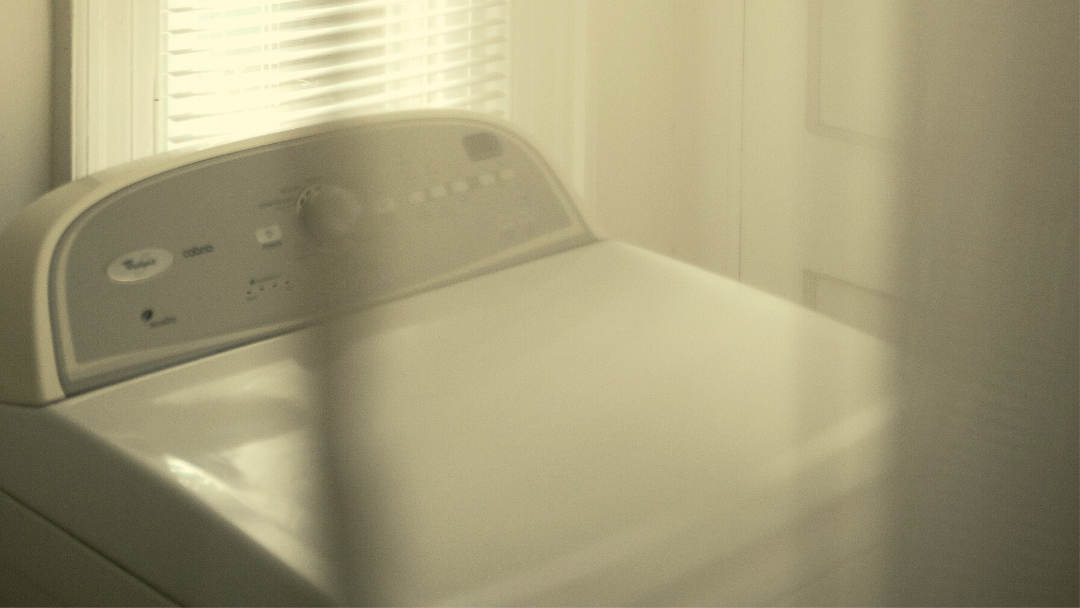SOMETHING BAD HAS HAPPENED IN THE FAMILY. Sylvia knows this because Mom is on the phone, whispering things in Spanish like “como puede ser?” (how can this be?) and “hermanita” (which Sylvia knows means sister; Mom told her this once), then going silent all of a sudden, like she’s just realized Sylvia is listening at the kitchen door. Sylvia presses her ear to the door and waits. Mom is quieter now, like her voice is trapped inside a jar. Sylvia hears her mother sniffling, saying, “Que horrible, hermana. Que cosa más horrible en todo el universo.” She hears a name repeated several times: Ernesto. Sylvia’s cousin. Mom is crying, saying she’s sorry over and over, saying she can’t imagine, can’t imagine, can’t imagine. Then there’s a click of a button, and the phone snaps back on the wall again.
Sylvia waits with her ear glued to the door. For a few moments, everything is still. Then Mom’s walking zombie-like into the living room where Sylvia and her sister Annie are supposed to be putting together an animal puzzle, where Sylvia is currently not doing what she’s supposed to. Sylvia rushes to the table and forces two pieces together that should match but don’t. She has this flushed look on her face like, “Why aren’t these shapes fitting together? I swear, I’ve been working on this puzzle the whole time,” but Mom doesn’t seem to notice her or Annie, who is laying on the carpet at the edge of the couch, counting the freckles on her stomach. Mom doesn’t notice Charlie either, their dog who licks his butt sometimes, who is licking his butt now.
When Mom tells Sylvia, “Why don’t you play outside with Annie?” Sylvia takes her sister by the hand and, instead, says, “Want to learn how to wash laundry?” because it’s raining outside, and Sylvia can sense Mom doesn’t want them around right now. Annie is six years old. She doesn’t know how to wash laundry yet or do grown-up things like vacuum the house when it gets too dirty. But Sylvia is ten, which means she’s old enough to do laundry and sometimes fry an egg on the stove, with Mom and Dad’s permission of course.
Sylvia tells Mom she’s bringing Annie to help with laundry and Mom says, “Remember to feed your sister.” Mom says, “your sister,” not Annie, like she’s trying to remind Sylvia she’s responsible for Annie, too. Annie’s autistic—Sylvia’s parents sat her down and told her once—still, sometimes Sylvia gets tired of having to do things for her. Today, she packs them peanut butter and jelly sandwiches. She cuts the crust off for Annie because it reminds her of sand. When their family goes on vacation, Annie doesn’t like getting in the ocean because the sand sticks to her soles. Sylvia remembers Annie doesn’t like crust, even when Mom forgets. Even when Dad tells her to try and eat it anyway. Then Annie cries, and Sylvia has to wait for all the salt to dry on her sister’s cheeks. Sylvia has to sit still and fight the urge to comfort Annie until she calms down a little. All because she doesn’t like crust.
Sylvia and Annie spend an afternoon in the basement, sitting cross-legged on the concrete floor. The bones on their bottoms ache as they wait for the washing machine to stop spinning. Mom started a load earlier and forgot about it. Their arms swing by their sides like broken hinges. They nibble on their sandwiches. The washer hums, then whistles. It rocks and shrieks, a sound like rusted train brakes. Annie covers her ears with her palms. “Sylvia?” she whispers. “Can you tell it to stop?” Sylvia hugs her sister until the washer stills. Even after the shrieking ends, Annie still clings to Sylvia’s T-shirt.
The light from the spare bulb dims. Sylvia tells her sister not to worry. She says, “The darkness is only in our imagination,” but Annie disagrees.
“No,” she says, “the basement is getting smaller.”
And maybe she’s right.
Sylvia hears Mom pacing upstairs, her voice growing louder. She hears Dad’s voice follow. He’s back from work, though it’s only lunchtime. The echoes of their parents’ voices vibrate in the pit of Sylvia’s stomach. Annie calls this The Sink, the place where all the bad feelings go. Sylvia looks down at her stomach. She pokes it. She locates the pit. And when she finally finds the bottom, she tells her sister, “Annie, I think I have The Sink inside me, too.”
And Annie says, “Uh-oh. That’s not good.” She wrings her hands in front of her face, then starts to cry.
Sylvia feels bad for upsetting Annie, for overwhelming her by mentioning something unhappy. She knows she has to talk to Annie about how Mom is upset, how Mom was on the phone with her sister and now she is upstairs—sad—and Dad’s home from work.
Sylvia has to talk to Annie because maybe no one else will and because she feels a responsibility for Annie she can’t control, like the time she dreamt her sister was drowning in a swimming pool, only when she blinked her eyes to wake, she saw it was real. One moment dream Annie was shouting, “Watch me swim underwater!” the next, the world was one giant heartbeat—shifting everything together, pulsing in rhythm. Sylvia watched in horror as Annie’s head bobbed up and down in the swimming pool, no floaties to buoy her, until she was fully awake and diving after her sister, pulling her small body up for air. Then Annie, washed up on the surface, took a deep, shuttering breath.
“Annie?” says Sylvia.
Annie doesn’t hear her. She’s doing that thing with her hands again, that thing Sylvia feels guilty for hating. That thing where Annie holds her own hands and shakes them in front of her face. She hates how Annie shakes so hard, how she crosses her eyes. She hates how Annie rocks her head back and forth.
“Annie,” she says. Again. “Can you hear me?”
Annie stops shaking. She stops rocking and looks up at Sylvia with a still, steady gaze. Sometimes when Annie looks at Sylvia, she wonders what goes on up there, in her brain.
“Hello?” says Sylvia.
“Hello,” says Annie. And she’s happier. She lifts her chin up, up, up until she’s staring at Sylvia’s forehead. She’s too close for comfort, so Sylvia steps away. She switches Mom’s clothes from the washer to the dryer. Then she digs through the laundry hamper, tossing her and Annie’s clothes into the machine. Annie watches, then picks up a shirt with a pink butterfly on the front and tosses it in.
“This is the way we wash our clothes,” says Sylvia. “First, you put your laundry in the washer.” She throws a pair of socks in. “Then what do you do?”
Annie shrugs.
“You pour the…” Sylvia waits for Annie to catch up, to think of what she needs to pour into the washing machine to get the cleaning started.
“You pour the…” Annie repeats. She looks up at Sylvia and waits to be told the answer.
“What do you pour into the washer, Annie?”
“Laundry,” she says.
“Well, yes,” says Sylvia, “but what do you do afteryou put the laundry in?”
“You wash it.”
“Yes, that’s what we do to laundry,” says Sylvia, “but what do we do before?”
“We wash it.”
Sylvia buries her head in her hands. Their parents are quiet now. The washer stills.
“Annie?” she tries again.
Sylvia thinks back to Mom on the phone, how there was something different about this call, how Mom kept repeating words like lo sientoand pobre. Sylvia isn’t used to hearing Spanish around the house. Mom doesn’t speak much of it to Sylvia or Annie—“It’s better that way,” she explained once, “people will understand you better at school”—but sometimes Sylvia wishes Mom spoke more Spanish to them. Then Sylvia could tell the kids at school that she speaks Spanish, and they could ask her how to say starand she could say estrellawith no hesitation, like there had never been a time when she hadn’t known the language.
“Annie, you need to focus and think. What do you put over the clothes? What’s this?” She points to the detergent, sitting on top of the dryer. “Annie, are you listening?”
But Sylvia knows that Mom only says “lo siento” when she’s really sorry about something, only says “pobre” when someone is having a hard time and Mom picks up on it. Pobre de ti. Like when Mom found out Sally Holden wasn’t eating lunch at school because her parents didn’t have enough money to send her, so Mom gave Sylvia checks to give to Sally Holden for lunch even though Mom lost her job and the money was really Dad’s. And this went on for weeks until the principal gave Sally free lunch. And later Mom said, “It was the right thing to do.” And Dad said, “Easy for you to say,” which earned him an elbow in the ribs from Mom.
Annie looks up. “Yeah,” she says, “I’m listening.”
Sylvia remembers how Mom kept repeating “que horrible” on the phone, until she began to cry. Sylvia thinks of her cousin Ernesto who lives in California. Her Aunt Lucia’s son. She remembers him and Annie running around Aunt Lucia’s backyard, kicking tomatoes from their vines and tagging each other, saying, “You’re it.” “No, you’re it.” “Not it.” It’s all a blur to Sylvia now. She remembers Ernesto teaching her how to cross multiply, how to move the decimal over on a restaurant bill and double the amount. “Anytime you need to leave a tip, this is how you calculate twenty percent,” he said once. “Got it?” Then he added, “Unless the waiter was bad, then only leave fifteen.” At the time, Sylvia had wondered how she might use a shortcut for calculating fifteen percent—just in case—but decided not to ask.
“Annie,” she says, “I think our cousin Ernesto may be dead.”
Annie wrings her hands together. “Dead?” she says. “Like in Heaven?”
She nods. “Like in Heaven.”
Annie is quiet for a while. The washer is silent now.
“Now what do we do?” she says.
Sylvia shrugs. “I guess we wait until Mom tells us.”
“No,” says Annie. “After the laundry… Now what?”
“Oh,” says Sylvia. “We switch it. We take the clothes from the washer and put them in the dryer.”
“Then we wash it?”
“No,” says Sylvia. “Then we dry them. It’s different, Annie. The washer washes clothes and the dryer dries them. Get it?”
“Yes,” she says, though Sylvia isn’t sure she got it. “And Ernesto goes to Heaven?”
Sylvia sighs. She thinks of her parents: how Mom is probably crying, how Dad is probably patting her back, not saying much. Sylvia remembers when Ernesto took her on her first rollercoaster, how she was scared to go too high, how he told her not to worry; rollercoasters had to come down. Always. She thinks of Ernesto, maybe dead, and how she’s not sure when they’re going back to California to visit. How she’s not sure about anything at all.
Annie squirms on the concrete floor, her bottom likely aching. She waits for Sylvia to answer. Sylvia studies the washer, considering how she might simplify her instructions and teach Annie a lesson that would stick. First step: transfer the clothes to the dryer. Second step: remove the lint from the trap. Third: choose the heat setting.
“And Ernesto goes to Heaven,” says Sylvia.
She imagines the dryer shrinking their clothes smaller and smaller and smaller.
PATRICIA PATTERSON is a Mexican-American writer and editor based in Central North Carolina. Her work appears or is forthcoming in PANK, Pithead Chapel, Porter House Review, and elsewhere. When Patricia is not writing or crafting, she enjoys hanging out with some of her most loyal companions: the birds.
Like what you’re reading?
Get new stories or poetry sent to your inbox. Drop your email below to start >>>
OR grab a print issue
Stories, poems and essays in a beautifully designed magazine you can hold in your hands.
GO TO ISSUESNEW book release
China Blue by Catherine Gammon. Order the book of which William Lychack Jeffries calls “a fiery declaration of all that is inexpressible about desire and loss and the need to find a home in a world in which even the most solid and real of things feel often less than completely solid or real.”
GET THE BOOK



